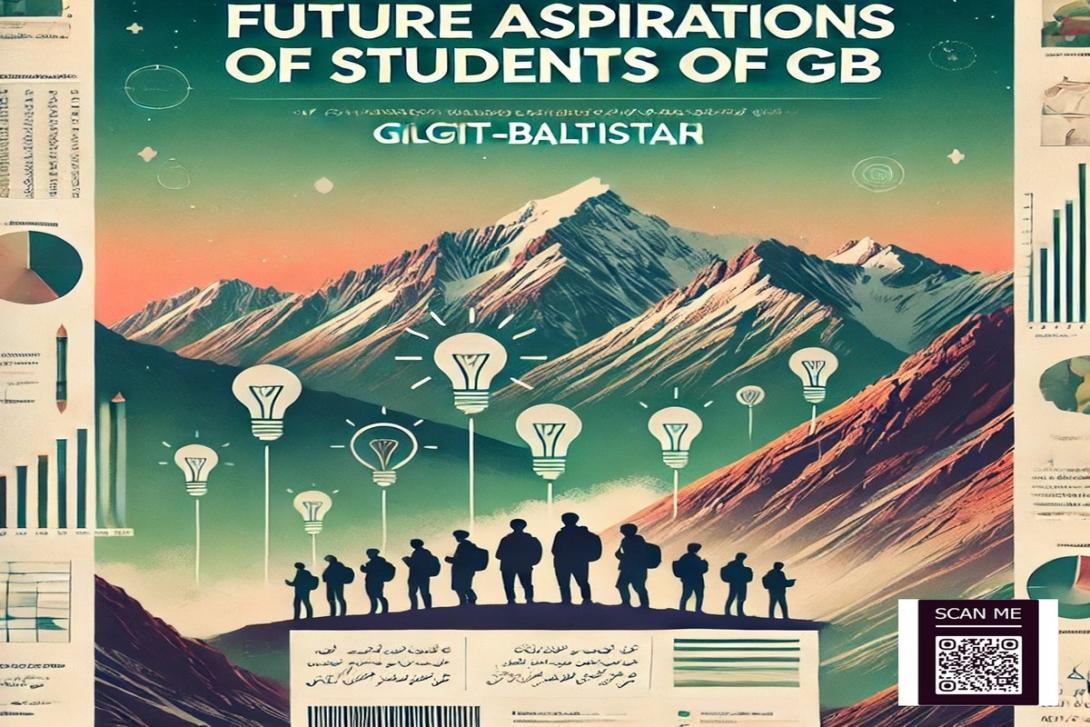
Gilgit-Baltistan (GB) stands at a critical juncture in its political and socio-economic development. To better understand the aspirations and opinions of the region's youth, particularly its students, we conducted an extensive survey. This survey provides invaluable insights into the future affiliations, governance expectations, cultural representation, and broader socio-economic concerns of the students in GB. The participants, hailing from various districts and tehsils across GB, were given the opportunity to voice their thoughts on issues critical to the region's future.
Here's the Link
https://forms.gle/auPe76eD71xXNx2N8
Survey is Live
The survey is organized into several sections, each exploring key aspects of GB’s future:
1. Political Future of Gilgit-Baltistan
The first section of the survey focuses on the political future of GB. Students were asked about their preferred affiliation for the region—whether GB should continue as part of Pakistan, seek complete independence, join another country, or opt for a semi-independent status similar to regions like Greenland. This section delves into their reasoning, exploring motivations ranging from historical ties with Pakistan, aspirations for self-determination, and the desire for cultural preservation to economic concerns and security.
2. Perspectives on Governance and Administration
In the second section, participants were asked to share their satisfaction with the current governance and administrative framework in GB. The survey seeks to understand student views on key governance issues such as constitutional status, political representation, and infrastructure development. Additionally, it touches on the effectiveness of the current administration and what changes the youth believe would improve the governance of the region.
3. Cultural Identity and Linguistic Representation
GB’s rich cultural and linguistic diversity is an integral part of its identity. This section examines how well students feel their native languages, such as Shina, Balti, and Burushaski, are represented in educational institutions. Students were also asked whether they believe that regional languages should be made compulsory in primary education. This section highlights their aspirations for preserving their cultural heritage and promoting linguistic diversity in GB’s educational system.
4. Views on GB’s Relationship with Greater Kashmir
An important and often debated issue is whether GB is part of Greater Kashmir. This section explores students' perspectives on this, offering insight into those who view GB as part of Kashmir based on historical, geographical, and political reasons, and those who believe in its distinct identity. The survey also touches on the ambiguity of GB’s legal status within Pakistan and the international community’s recognition of this complex issue.
5. The Role of the United Nations and International Resolutions
In light of ongoing international discussions around the Kashmir dispute, students were asked to share their thoughts on the United Nations resolutions regarding the status of GB. This section provides a window into the youth’s understanding and opinions on whether these resolutions should be acted upon or if they are seen as impractical in today’s context.
6. Socio-Economic Concerns
One of the most significant aspects of the survey relates to the socio-economic concerns of GB’s students. Participants were asked about the key issues affecting the region, including economic development, healthcare, education, infrastructure, and unemployment. Youth unemployment and brain drain are highlighted as major concerns, as many students feel there is a lack of economic diversification and opportunities for professional growth within GB.
7. Factors Shaping Political Affiliation
Understanding the factors that influence students’ political affiliations is critical in predicting the region’s future trajectory. The survey assesses how various elements such as economic opportunities, education, healthcare, security, and cultural ties impact students’ perspectives on the region's political future. This section provides insights into what young people in GB value most when considering the future political status of the region.
8. Role of Media and Cultural Narratives
In a region with diverse viewpoints, the role of media and cultural narratives in shaping opinions is profound. This section examines whether students view the portrayal of GB’s issues in media as positive or negative. Their responses reflect the influence of national and local media in framing public perception and the importance of fair and accurate representation in fostering unity.
9. Recommendations for the Government
The final section of the survey focuses on students’ suggestions for the government of Pakistan and local authorities in GB. Participants offered recommendations on how the government can better support the region, particularly in areas like strengthening economic opportunities, improving governance, promoting inclusivity, and fostering national unity. Their suggestions highlight the need for transparency, investment in infrastructure, and a greater focus on the unique needs of GB’s population.


